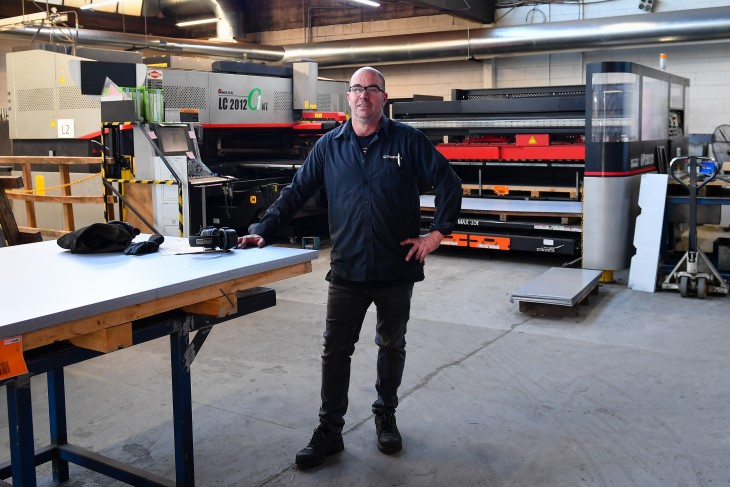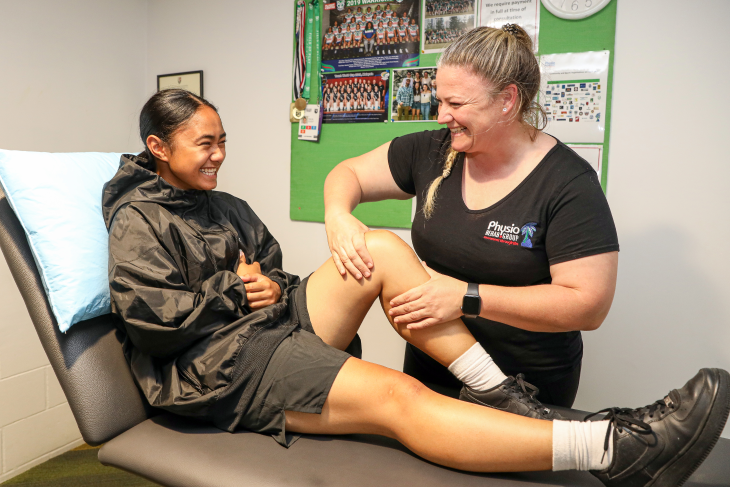ACC introduces streamlined healthcare for musculoskeletal injuries

People with musculoskeletal injuries – such as fractures, dislocations and high-grade tears – will soon have access to a smoother recovery journey following the introduction of the Integrated Care Pathways Musculoskeletal (ICPMSK).
People with musculoskeletal injuries – such as fractures, dislocations and high-grade tears – will soon have access to a smoother recovery journey following the introduction of the Integrated Care Pathways Musculoskeletal (ICPMSK).
It’s believed the service will lead to improved outcomes for people who are injured, by allowing health providers to design an integrated and coordinated treatment plan rather than providing isolated services.
The new service follows a four-year pilot in which clients reported improved experiences and lower rates of repeat injuries.

Adrian Reid, who works as a factory manager in Christchurch.
‘It’s turned my life around’
Christchurch factory manager Adrian Reid says the new approach was a game-changer after he’d become frustrated with the health system.
Adrian suffered a nasty back injury while helping to move a wooden desk at work. He soldiered on through the pain but a few weeks later experienced muscle spasms and collapsed.
He says he endured weeks of discomfort and frustration, with several medical appointments delayed and a lack of communication between the different parties.
“I was getting depressed because I couldn’t see an end to it all,” he says.
That changed when Adrian entered the pilot programme (known as the Escalated Care Pathway), and a team of health professionals developed a coordinated treatment plan.
A health navigator was employed to help him with queries about his treatment and medical options.
“It’s really turned my life around,” he says.
“I probably wasn’t heading down a great path before and now I’m out there enjoying life again. Without this programme, I wouldn’t be where I am today.
Adrian’s health navigator, Jane Harding, says she immediately noticed his frustration with the health system.
“When I explained the pilot programme, he was excited and said he’d never had anything like this with previous injuries,” she says.
“We helped turn a negative event into something positive and Adrian exited our programme back at work, stronger and healthier than when he had his accident.”

The benefits of a provider-led service
ACC Deputy Chief Executive for Prevention and Partnerships Tane Cassidy says the new care pathway is part of our move towards providing value-based healthcare through a provider-led service.
“It puts the patient at the centre of their recovery and brings together an interdisciplinary team of health providers to support the patient with their recovery journey,” he says.
“The emphasis is on improving kiritaki (client) outcomes and ensuring their individual goals are met.”
The service aligns with our new strategy, Huakina Te Rā, which has the vision of Tōnui Ake Nei – A Thriving Aotearoa.
Tane says the adoption of value-based healthcare represents a significant change for ACC, enabling providers to work in innovative ways to improve outcomes for all New Zealanders.
ACC funds healthcare providers to develop tailored and coordinated treatment plans, rather than paying for each service provided.
“It’s up to the supplier how they use the funding to provide the care the kiritaki needs,” he says.
“We’re giving health providers the space to use their expertise to develop and deliver the best treatment plan that puts the patient at the centre of their recovery.”
The service will be rolled out nationwide from 4 March, with eight suppliers initially contracted and more scheduled to be added throughout the year.
Clients can be referred into the pathway through their health provider, employer or ACC.

Contracted Musculoskeletal ICP suppliers
Active Health New Zealand
Active+
Advantage South
Body in Motion Physiotherapy and Rehabilitation
Evolution Care Pathways
Habit Health
RESS Joint Venture
TBI Health Group




